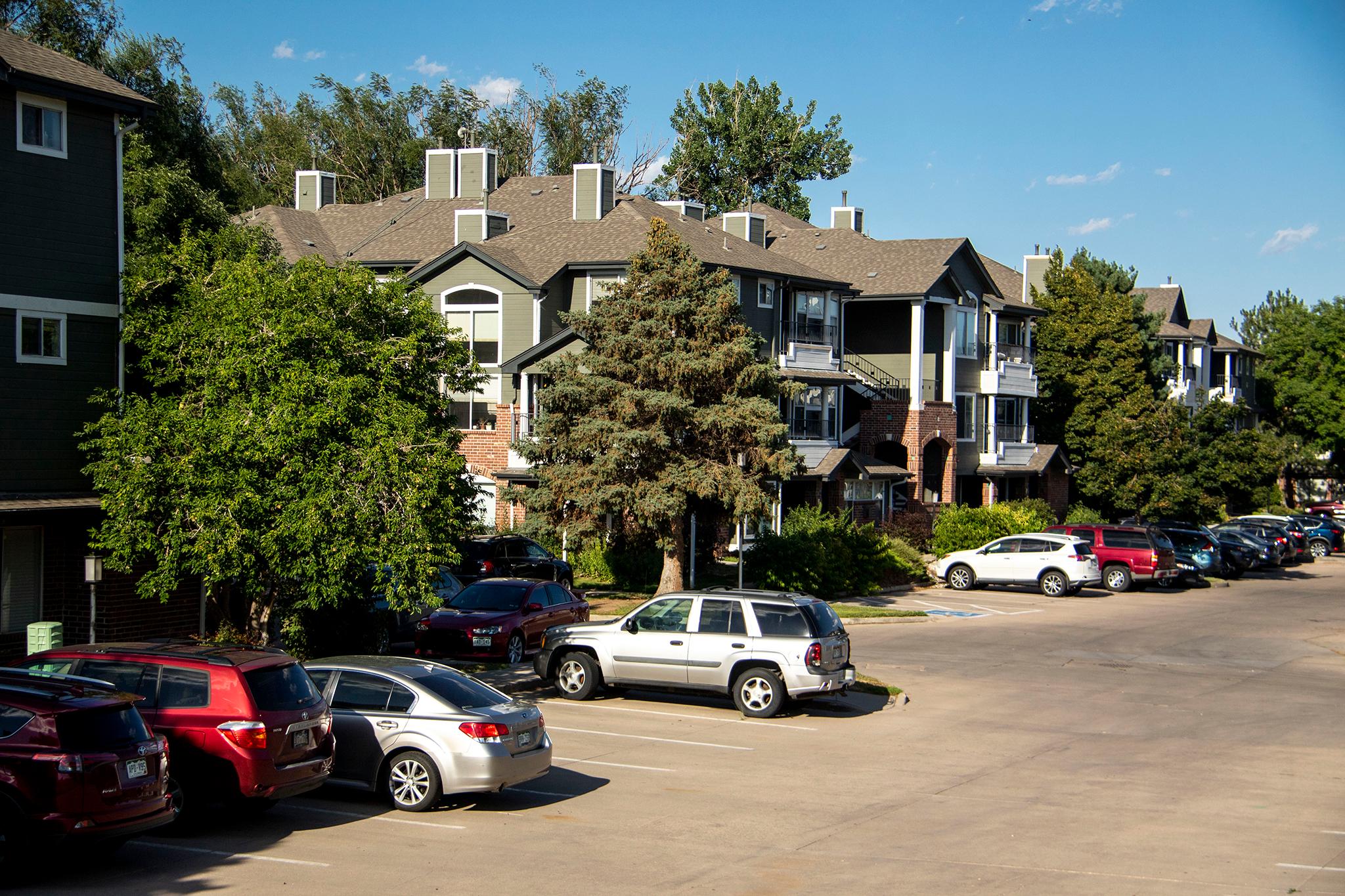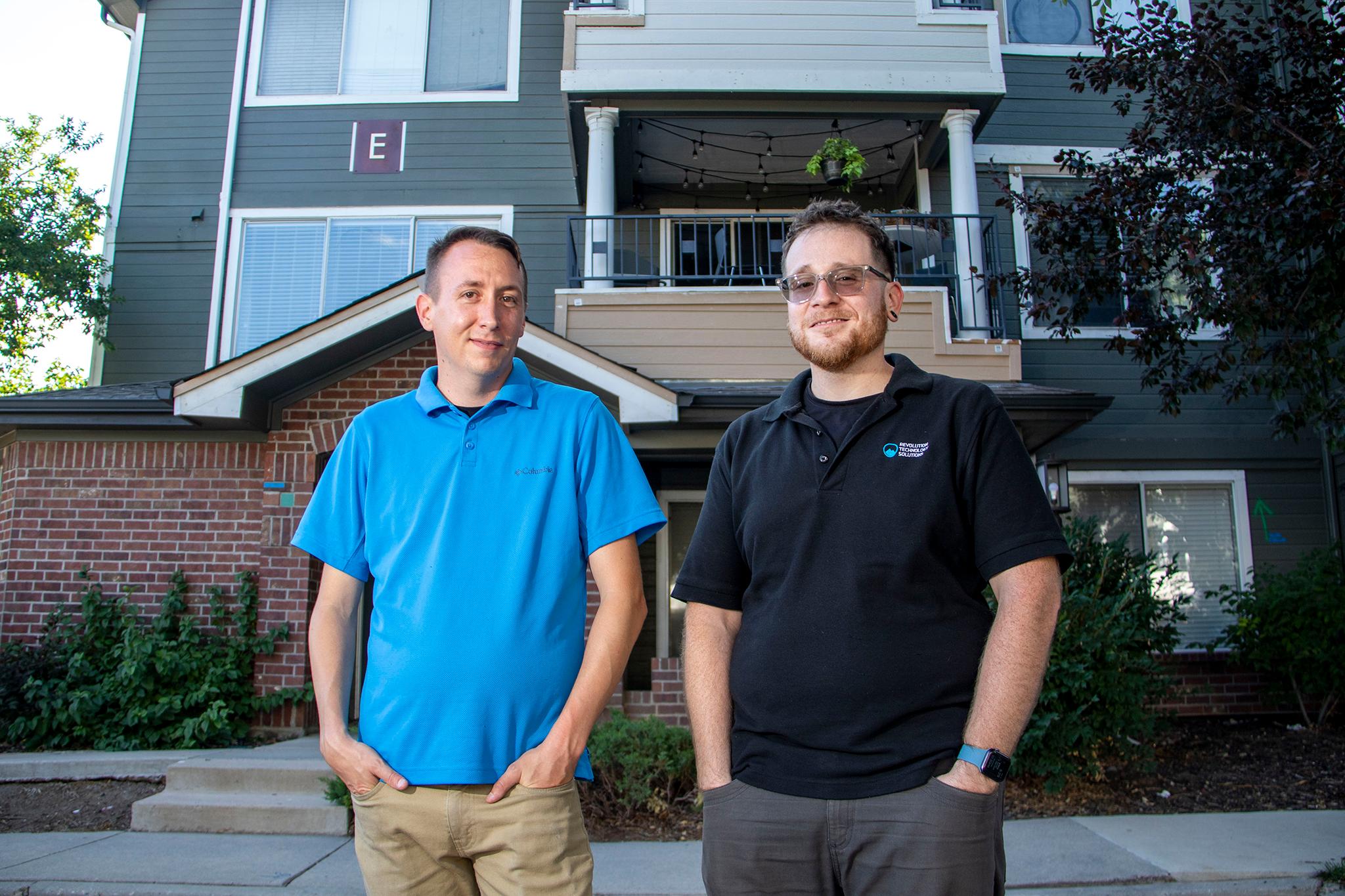In 2017, William Paul Colgan and his partner left Philadelphia for Denver, in part, to enjoy cheaper rent.
They moved to a luxury, lakeside complex, Tava Water Apartments, replete with tennis courts, golf greens and clubhouses, in Windsor, a neighborhood on the far east side of town.
Their rent? $1,287. Five years later, they are paying $2,531 a month, almost double, at the same place.
Colgan feels nostalgic about the days Denver seemed more affordable than Philly.
"That is no longer true," Colgan said.
Median home prices in Philadelphia are $275,000, according to Realtor.com. In the Denver area, the median home price in July was $480,000.
Rent's also higher in Denver. Median two-bedroom rent in Philadelphia is $1,750; in Denver, it's $2,340, according to data from the latest national trends report from the online rental site Zumper.
Through their first few years in town, the rent hikes were moderate and acceptable to the couple. The jaw-dropping jump came in February of 2022, when rent shot up to $2,185. A few months later, the landlord raised the rent again for a lease extension to $2,531, Colgan said.

Raising the rent more than once in a year is prohibited by Colorado law, said eviction defense attorney Jana Happel.
She pointed to a Colorado Statute that went into effect in June 2021.
The law goes like this: "In residential tenancies, a landlord shall not increase rent more than one time in any twelve-month period of consecutive occupancy by the tenant, regardless of: (a) Whether there is a written rental agreement for the tenancy; (b) The length of the tenancy; and (c) Whether the tenant's rental agreement is for a fixed tenancy, a month-to-month tenancy, or an indefinite term."
All that's to say, landlords only have one chance a year to hike prices, and if they try to do so more often than that, no matter the context, they can find themselves in court.
So Colgan and his partner are taking legal action against their landlord, BH Management, to prevent it from hiking the rent. The company did not respond to multiple requests for comment.
Colgan said that not only has rent shot up, but amenities have also been slashed during the pandemic and never reopened, even as the renters continue to shoulder a $65 a month "amenity fee."
"We have a private lake with a marina that has never reopened," Colgan said. "We used to have tennis courts and golfing greens up on the property, and they upgraded them to grassy areas. There's seven clubhouses on the property. Only one of them's open. And the one closest to us, they were supposed to be converting to a theater. They started construction, put it on hold, and they just announced that they're not moving forward with that project."
Because BH Management is out of state, the couple has a hard time raising issues when on-site management has been unresponsive to maintenance concerns and other issues with the city.
They're leaving, but not going far.
Colgan and his partner run a commercial moving company and are in a better financial position than most in Denver, he said. Because of their job, they're not intimated by a move. So they're headed to cheaper, similar digs in City Park for $200 less.
When their apartment was listed for rent, Colgan was stunned: The landlord was charging $1,963 for rent -- $568 less than he and his partner were paying.

Colgan believes the market can't support the $2,531 rent the landlord was charging the longtime tenants. He suspects the rent was raised so high because people are intimidated by moving and willing to eat the extra costs to avoid the inconvenience.
"If they can price-gouge you for an extra 300 bucks a month, that's just 300 extra bucks a month that they're getting there," Colgan said. "They obviously know that the market isn't willing to pay that if they're not listing this apartment right now at that rate."
Tenants don't have much leverage if their current landlords want to raise the rent. Finding a home in metro Denver is tough for most people.
The Denver apartment vacancy rate, at 4.7%, continues to be low -- though it has risen from its record low of 3.7% a year ago. That's according to the Denver Metro Area Apartment Vacancy and Rent Survey, compiled by the University of Denver's Daniels College of Business, Colorado Economic Management Associates and the Apartment Association of Metro Denver.
Rent is up 5.3% from the first quarter of 2022 to the second quarter, according to the report. Year over year, rents are up 12.6%.
With the for-sale housing market stabilizing, there may be additional demand for rental units. Whatever cool off is happening in real estate could ultimately increase demand for apartments and raise prices for renters.
"It's been crazy. Like everyone in Denver, we've been dealing with this for a while now. It's a very interesting market," Colgan said. "I'm glad to see things 'starting to slow down,' but as much as people keep saying that it's slowing down, I don't know how much I buy into that yet."
Colgan and his partner, as business owners, are less concerned about themselves and their ability to handle the rising market and more worried about their employees having a place to live.
"We have a commitment to Denver as a community," Colgan said. "We employ people that work here. If we're struggling for rent payments, I know our employees are struggling for rent payments."
Over the three and a half years their company has been up and running, they have raised salaries 16% a year to keep up with the rising cost of living in Denver.

"I wish that was true for every employer out there, but I can't control every employer out there," Colgan said. "If I want my employees to be able to show up and do their job, they also need to have a place to sleep and food to eat and schools for their kids and transportation -- and all of those things cost money."
While they are investing in their employees and growing their business, Colgan acknowledged he and his partner can't afford the same luxuries bosses often have in other cities.
"Even though we're business owners, we're still renters," he said. "We're not financially set enough to be a property owner."
At least, not in Denver.











